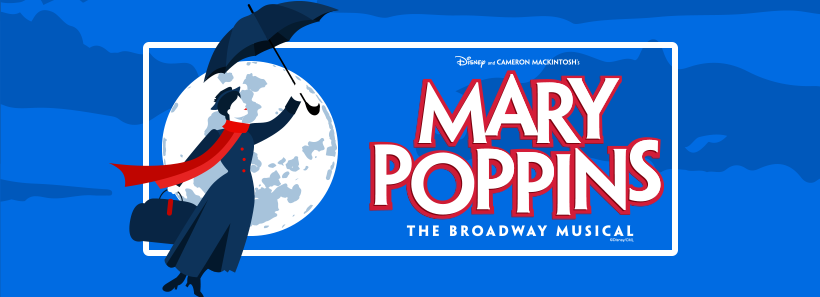The version of Mary Poppins that we present on our stage hews much closer to the original spirit of P.L. Travers’s book than to the famous Disney film. In the original book, Ms Travers was much more interested in writing about the evils of the class structure in England. And as lovely as Julie Andrews was, the author deplored her casting, with her cut-glass accent and a voice to match. The original Mary, like Ms Travers, an immigrant from Australia, was from the underclass of London deplorables. The product of a drunken father and suicidal mother, Travers, a life-long iconoclast, a devotee of mysticism and open bisexual, was hardly the lonely spinster portrayed in the recent “Saving Mr. Banks.”
Travers’s roots further show in her vision of the distracted banker father’s and the self-involved actress (yes, not a suffragette) mother’s lack of interest in their children. Mr. Banks, the vision of white privilege, has a Scrooge-like bah-humbug attitude. Buried in the penurious work of accumulating wealth, the Bankses, in a clear reference to medieval Hamelin, are ripe candidates for the Pied Piper-esque appearance of Mary, a lower-class shaman who employs her dark magic to steal the children’s hearts, lead them not only to an understanding of empathy and compassion for the poor, but also engineer the kite-flying redemption of their dad.
The book, of which Sylvia Plath and T. S. Eliot were huge fans, and the musical occupy a darker moral universe than the Disney film. They paint a tougher picture of the struggling middle class in London in the early 20th century, when the gap between the Bankses and the poor was still desperately wide and riven with a lack of understanding. P.L. Travers was writing to try to close that gap and we follow suit with our production of her timeless story at this holiday time when the world so desperately needs a large dose of empathy and compassion, and a substantial “spoonful of sugar.”



